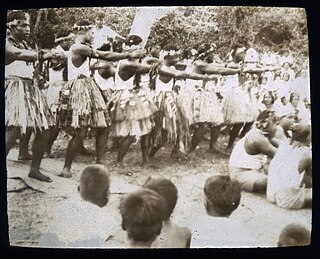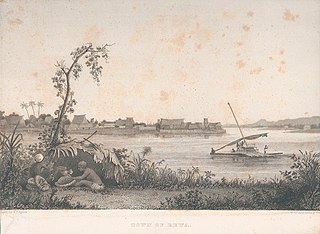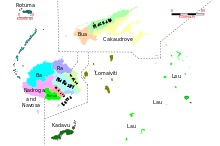
The politics of Fiji take place within the framework of a parliamentary representative democratic republic. Fiji has a multiparty system with the Prime Minister of Fiji as head of government. The executive power is exercised by the government. Legislative power is vested in both the government and the Parliament of Fiji. The judiciary is mostly independent of the executive and the legislature.

The Senate of Fiji was the upper chamber of Parliament. It was abolished by the 2013 Constitution of Fiji, after a series of military coups. It was the less powerful of the two chambers; it could not initiate legislation, but could amend or veto it. The Senate's powers over financial bills were more restricted: it could veto them in their entirety, but could not amend them. The House of Representatives could override a senatorial veto by passing the bill a second time in the parliamentary session immediately following the one in which it was rejected by the Senate, after a minimum period of six months. Amendments to the Constitution were excepted: the veto of the Senate was absolute. Following the passage of a bill by the House of Representatives, the Senate had 21 days to approve, amend, or reject it; if at the expiry of that period the Senate had done nothing about it, it was deemed to have passed the bill.

Articles about people, places, things, and concepts related to or originating from Fiji, include:

The Great Council of Chiefs is a Fijian constitutional body. It previously existed from 1876 to March 2012 and was re-established in May 2023.

Fijians are a nation and ethnic group native to Fiji, who speak Fijian and English and share a common history and culture.

Lautoka is the second largest city in Fiji. It is on the west coast of the island of Viti Levu, in the Ba Province of the Western Division. Lying in the heart of Fiji's sugar cane-growing region, the city has come to be known as the Sugar City. Covering an area of 32 square kilometres, it had a population of 71,573 at the 2017 census, the most recent to date.
The House of Chiefs in Fiji consists of the Fijian nobility, composed of about seventy chiefs of various ranks, majority of which are related. It is not a formal political body and is not the same as the former Great Council of Chiefs, which was a political body with a prescribed constitutional role, although the membership of the two bodies did overlap to a great extent.
The Council of Rotuma is a municipal body on the island of Rotuma, a Fijian dependency. Owing to the unique character of Rotuma, the powers of this council are greater than those of other municipal bodies in Fiji and in some ways it approximates a legislative body, though it is in every way subordinate to the Parliament of Fiji.
Rotuma Day is an annual celebration on the island of Rotuma, a Fijian dependency. It falls on May 13, the anniversary of the island's cession to the United Kingdom in 1881.
The Provinces of Fiji are the 14 administrative units into which the country is divided, particularly in relation to the provision of resources and services to the indigenous Fijian population by the Fijian Affairs Board. They are more or less derived from the major clan affiliations for each provincial region.

The Eastern Division of Fiji is one of Fiji's four divisions. It consists of Kadavu Province, Lau Province, Lomaiviti Province and Rotuma.

The Attorney-General is a political and legal officer in Fiji. The attorney-general is the chief law officer of the State, and has responsibility for supervising Fijian law and advising the government on legal matters. Like other members of the Fijian Cabinet, the attorney-general is appointed by the president on the advice of the prime minister.
Naitasiri is one of the 14 provinces of Fiji and one of eight located on Viti Levu, Fiji's largest island. It is located in Central Division.

Rewa is a province of Fiji. With a land area of 272 square kilometers, it includes the capital city of Suva and is in two parts — one including part of Suva's hinterland to the west and a noncontiguous area to the east, separated from the rest of Rewa by Naitasiri Province. The province had a population of 108,016 at the 2017 census, making it Fiji's third most populous.

The Fiji Football Association is the governing body of football in Fiji. It came into existence in 1961. It is the overseeing body of the Fiji National Team and its leagues.
Dr John Charles Fatiaki is a career medical practitioner who was chosen by the Rotuma Island Council to be their representative in the Fijian Senate. He is the younger brother of former Chief Justice of Fiji Daniel Fatiaki.
Kadavu Province is one of fourteen provinces of Fiji, and forms part of the Eastern Division, which also includes the provinces of Lau, Lomaiviti and Rotuma. Kadavu also belongs to the Burebasaga Confederacy, a hierarchy of chiefs from southern and western Fiji with Roko Tui Dreketi of Rewa as the paramount chief.

Verata is a tikina in Fiji's Tailevu Province. It is made up of several sub-districts or Tikina makawa, namely: Verata, Namalata, Tai, Vugalei, and Taivugalei.

Charles Walker was a Fijian civil servant and Alliance Party politician and diplomat.











